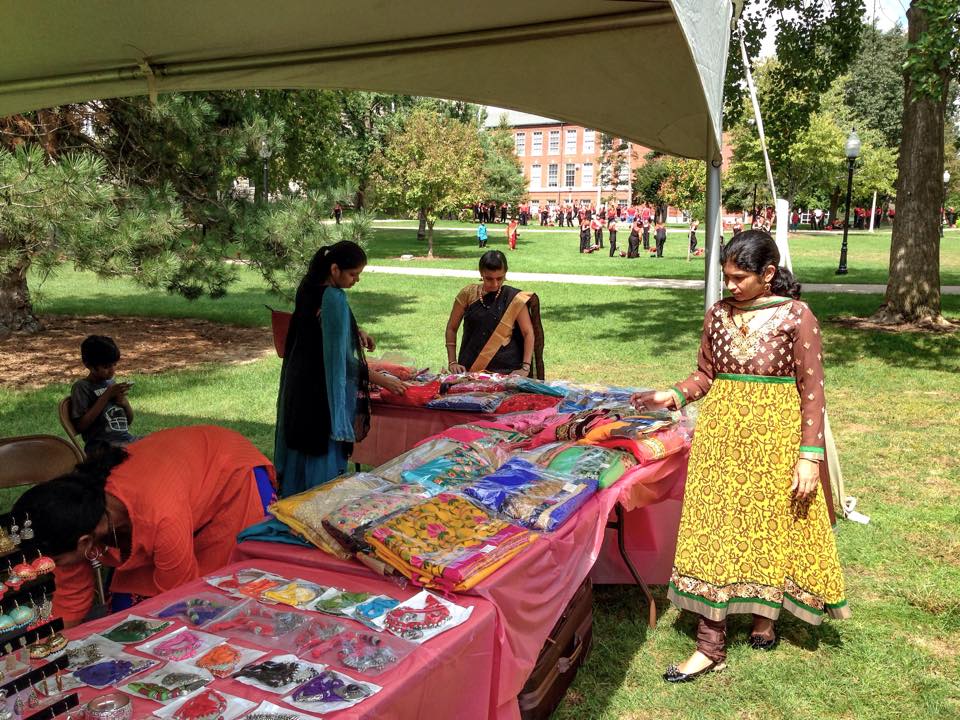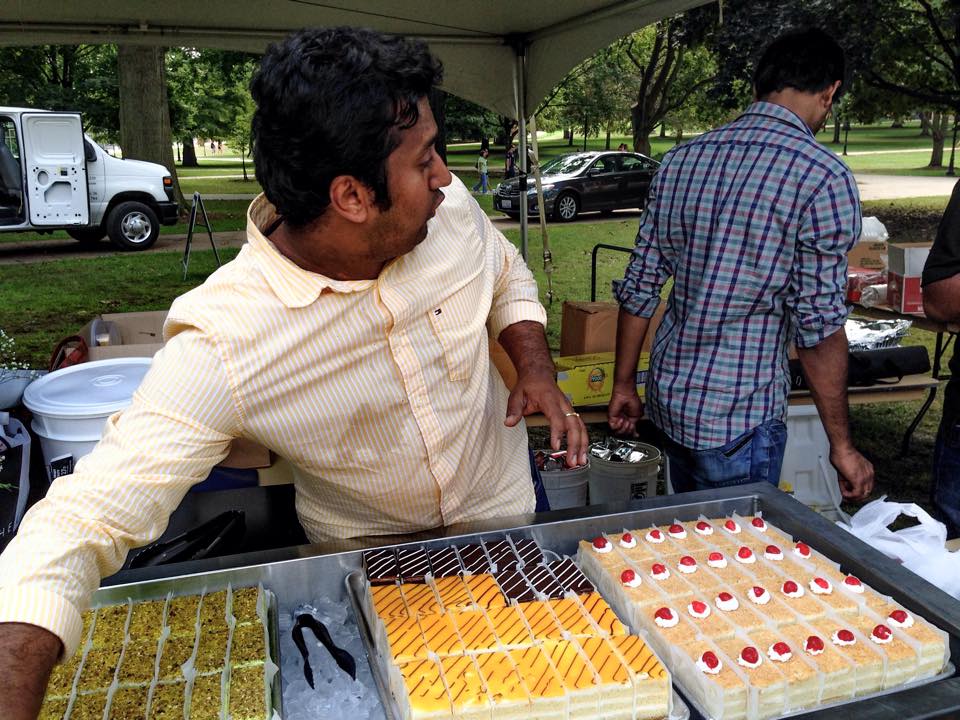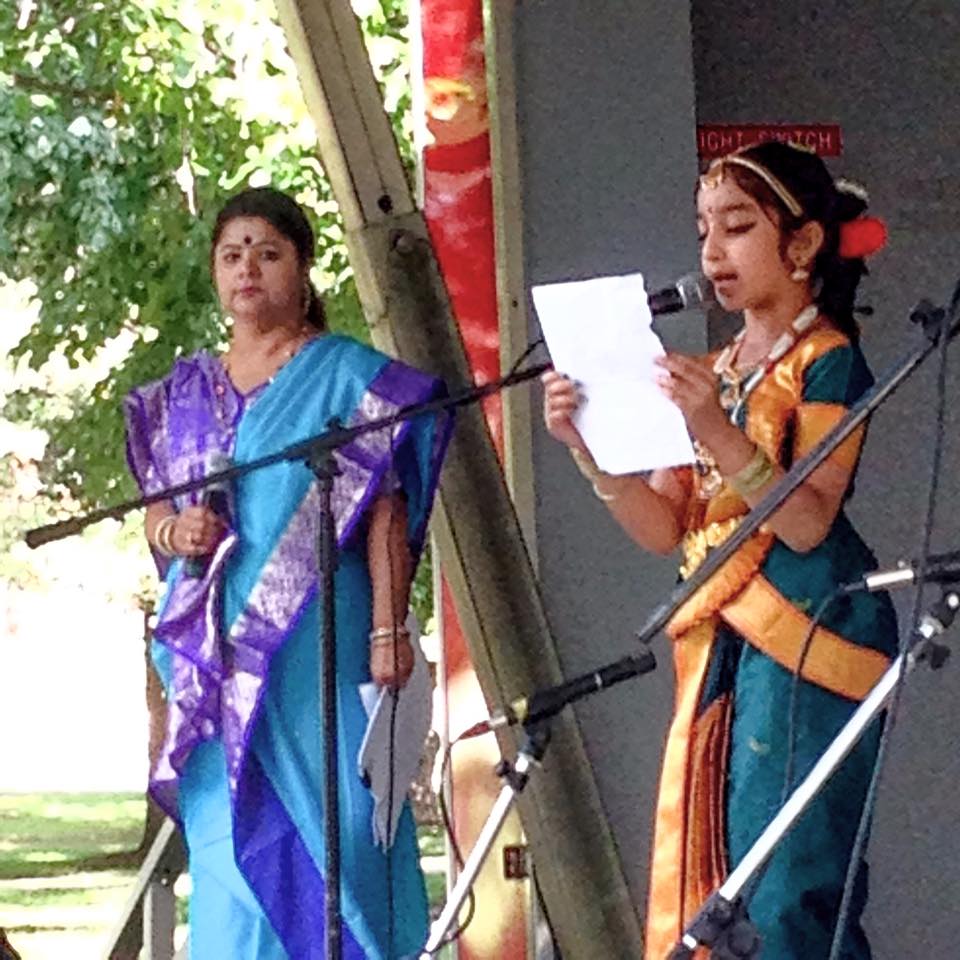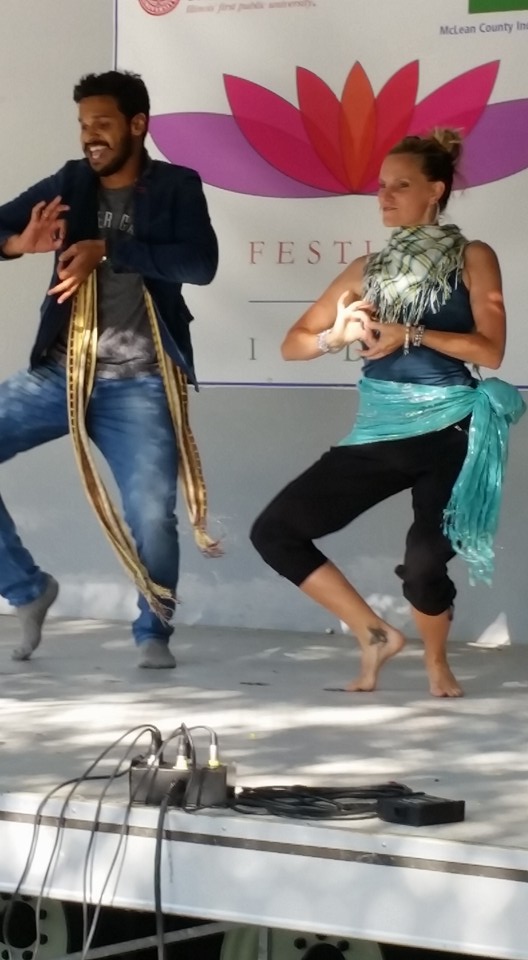I’m not talking about physically uncomfortable like after eating Thanksgiving dinner. Or after spending the night in a bed that wasn’t made for you, your spouse, a few kids…and maybe even a pet or two.
I’m talking about the kind of uncomfortable you feel when you tell your mother in law how wonderful her meatloaf is and your child says,
“But dad, you said grandma’s meatloaf tastes like cardboard.”
Or at the family reunion when your sister’s new husband complains about labor unions to your uncle who has worked as a union electrician his entire life.
…That kind of uncomfortable. It kind of sucks the air out of the space and is usually accompanied by a split second of silence that feels like forever.
Today’s sermon topic has a way of making us feel that kind of uncomfortable.
We continue our sermon series, You Asked For It, with a question submitted by one of you, “Is the Black Lives Matter movement a form of racism?”
I will be honest, it has been an uncomfortable week for me. The more I prepared for this sermon, the more uncomfortable I became. I was uncomfortable because so many of the stories I was reading were so far outside my own experience that it was hard to wrap my brain around them. I was uncomfortable because many of the stories point to unjust systems and ways of being that have benefited me my entire life. I was uncomfortable because it is clear to me that many of our brothers and sisters who have black skin are in deep pain, are very angry and frustrated with systemic racism that continues to affect their lives every single day. And I was uncomfortable because the more I read, the more convinced I became that the narrative in the media about the Black Lives Matter movement is creating a smokescreen that is keeping us from fully addressing the real root of the pain and anger from which Black Lives Matter was born. That root is racism. Our country has a problem with racism…and sometimes when we try to talk about it, we get very uncomfortable; sometimes we get angry and defensive.
I remember being a store with my grandma when I was about 8. We were standing at the checkout and an African-American man got in line behind us. As he did, my grandma moved her purse from her side to in front of her and she clutched it tightly. I asked her why she was doing that. Even at 8 years old, I remember how uncomfortable my grandma looked as she very quietly explained that it is good and responsible to be sure you keep an eye on your belongings. Racism makes us uncomfortable.
Today we are going to talk about it though. I hope the result of talking about it here is that we will begin to listen to one another, growing to understand experiences different from our own.
Let’s start with the text Sue read for us. Did this story make you feel uncomfortable? In the story, the woman, a Gentile, hearing that Jesus was traveling around healing people, appealed to him to heal her demon possessed daughter. She bowed at his feet as she begged him to help.
Now, what would you think Jesus might to say to this distraught mother?
I thought of a number of things he might say…all of them filled with compassion, care, and concern.
He said none of them.
Instead, he said, “Let the children be fed first, for it is not fair to take the children’s food and throw it to the dogs.”
Jesus’ answer was in the form of a metaphor. The children in this metaphor are the children of Israel, the Jewish people. The dogs were anyone who was not Jewish, the Gentiles. Basically, what Jesus was saying was, “My ministry is to people like me, Jewish people.”
That makes me uncomfortable. That is not the kind of thing the Jesus I follow would say. The Jesus I follow was the one who told the story about the Good Samaritan. The question the story answered was, “Who is my neighbor?” Jesus’ answer, “Everyone.”
The Jesus I follow forgave the Samaritan woman at the well; healed lepers, ate with tax collectors, and challenged religious leaders who cared more about law than love. The Jesus in this story slurred a woman who begged him to help her child, comparing her, not to a beloved pet who is a member of the family, but to a semi-wild scavenger, an outsider, who would eat unclean food.
I am uncomfortable with that.
While I am uncomfortable with it, I can certainly relate to it. We live in a world where name calling is not uncommon. We live in a world where we separate ourselves from people who are different from us. We live in a world where we fear “the other” will take what is ours. This fear is what keeps racism alive. Racism is so much more than name calling. It is embedded deeply into the fabric of this nation and the Black Lives Matter movement is a response to that reality.
The fact is, in this country, life is easier if you have white skin than if you have dark skin. I am not saying that white skin guarantees a person an easy life. That is not the case. Sadly, people of all skin colors experience poverty, violence, family disruption, and negative encounters with the criminal justice system. However, in our country, people with black skin are more likely to experience these things and experience them to a greater extent. This is a fact.
And that fact means that systemic racism exists in this country. That makes us uncomfortable though…because I think we want to believe the best about our country. We want to believe that all people, regardless of the color of their skin, have the same opportunities to succeed, to contribute, to have the things they need, and to be safe. That is not what many, many black people have experienced.
At a Not in Our Town meeting a few months ago, I heard the stories of black students, in our community, who have been discouraged from taking college prep classes in high school while their white peers, with the same or lower grade point averages, have been automatically placed in those classes. That is racism. I have seen studies that show employers are more likely to hire a white person with a criminal record than a Black person without one, and much more likely to follow up on a resume with a “white-sounding” name than an identical resume with a “Black-sounding” name. That is racism.
And we have heard so many stories of black people in our country who fear encounters with our criminal justice system, including law enforcement officers. Sadly, there seems to be a reason for that fear. It is racism.
And just because I have not experienced these things or you have not experienced them, does not mean our black neighbors have not. We must listen to them when they share from their pain, anger, and frustration.
In this congregation, we have heard Jim and Sharon Warren’s stories about the differences between how their children with light skin are treated versus their children with black skin. This week, I read the story of another parent with a similar family make up. She asked me, the reader, a number of questions:
Do store personnel follow your children when they are picking out their Gatorade flavors?
Do coffee shop employees interrogate your children about the credit card they are using while you are using the restroom?
Do your kids get treated one way when they are standing alone but treated completely different when you walk up?
Do the shoe sales people ask if your kids’ feet are clean?
To all of these questions, and many others, this mother says, “My black children are treated differently than my white children.” We need to listen and believe this mother and every other parent who shares these stories.
We need to listen to her and others as they have joined voices to say, “Black Lives Matter.”
And that may make us uncomfortable. Some of us might be tempted to respond by saying, “All Lives Matter.” Please don’t.
The Black Lives Matter movement is not “only Black Lives Matter.”
It is Black Lives Matter too.
The movement is about the experiences of black people. It is about black parents fearing for their child’s life when he walks out the front door. It is about black people not having the same opportunities white people have. It is about injustice. Let’s face it, in this country, white people have always mattered…just ask the Native Americans.
Let me say it this way (in the words of Reddit user, GeekAesthete):
Imagine that you're a teenager sitting down to dinner with your family, and while everyone else gets a serving of the meal, you don't get any. So you say, "I should get my fair share." And as a direct response to this, your dad corrects you, saying, "Everyone should get their fair share." Now, that's a wonderful sentiment — Indeed, everyone should, and that was kind of your point in the first place: that you should be a part of everyone, and you should get your fair share also. However, dad's comment just dismissed you and didn't solve the problem that you still haven't gotten any!
The problem is that the statement "I should get my fair share" had an implicit "too" at the end: "I should get my fair share, too, just like everyone else." But your dad's response treated your statement as though you meant "only I should get my fair share," which clearly was not your intention. As a result, his statement that "everyone should get their fair share," while true, only served to ignore the problem you were trying to point out.
Just like asking dad for your fair share, the phrase "black lives matter" also has an implicit "too" at the end: It's saying that black lives should also matter. But responding to this by saying "all lives matter" is willfully going back to ignoring the problem. It's a way of dismissing the statement by falsely suggesting that it means "only black lives matter," when that is obviously not the case. And so saying "all lives matter" as a direct response to "black lives matter" is essentially saying that we should just go back to ignoring the problem.
First Christian Church member Camille Taylor, in her recent WJBC forum, titled Which Lives Matter? said it this way:
“The leaders of this movement already know that all lives matter, but from the beginning, they wanted attention drawn to a disturbing pattern of reports of the over use of force toward black people. They want to end systemic racism across institutions, but particularly in the criminal justice system.”
The Black Lives Matter movement is not a racist movement. It is a justice movement. It is a justice movement that calls all of us to work together to end racism in this country. We must stop being distracted by semantics which serves as a smoke screen, keeping us from engaging the real problem. We cannot word smith the problem away. The problem is racism and it affects real people, with real lives, real families, and real fear about the future.
Semantics is not the only thing keeping us from engaging racism. The media’s portrayal of the Black Lives Matter movement as inherently violent and destructive distracts us from the real work of Black Lives Matter. Violence and the destruction of property are never okay. It’s important to remember, though, that Black Lives Matter is not the first justice movement that has struggled with the actions of individuals within the movement.
In fact, this week I ran across a letter, written to Dr. Martin Luther King Jr. in 1963. The letter was signed by a group of clergy. Here is an excerpt:
“…we are now confronted by a series of demonstrations by some of our Negro citizens, directed and led in part by outsiders. We recognize the natural impatience of people who feel that their hopes are slow in being realized. But we are convinced that these demonstrations are unwise and untimely…”
Just as we formerly pointed out that “hatred and violence have no sanction in our religious and political traditions,” we also point out that such actions as incite to hatred and violence, however technically peaceful those actions may be, have not contributed to the resolution of our local problems. We do not believe that these days of new hope are days when extreme measures are justified in Birmingham.
The problem then was not the protests. The problem now is not the protests. The problem is racism.
Other smoke screens include, pointing out that crimes among members of the black community exist in abundance, however the existence and prevalence of “black on black” crime does not change the fact that people with black skin do not have the same opportunities or receive the same treatment as people with white skin. And yes, those black lives matter, too.
Stories about barbeques and ice cream with police officers promote positive interaction between law enforcement and black citizens, but do not solve the problem of systemic racism.
The phrase Blue Lives Matter, adopted by some people to draw attention to the contentious environment law enforcement is working within, is another smokescreen. Yes, the lives of the brave men and women who protect our communities matter. However, it is important to remember that, in our world, policemen have position and power that black citizens do not have.
I identified one more smoke screen this week. As I read parts of the platform adopted by the Black Lives Matter movement, “A Vision for Black Lives”, I was disappointed that leaders entered into the political realm of U.S. foreign policy and views regarding the Israeli-Palestinian conflict. In my opinion, they created their own smoke screen that distracts from what I understand as their primary message. The problem is still racism.
Despite the negativity that has surrounded The Black Lives Matter movement. Participants have done some important things.
Students on college campuses have rallied to draw attention to racial issues that have plagued their campuses. At the University of Missouri, a protest led to the resignation of the university’s president who failed to institute and enforce policies that discourage racism. On the campuses of Harvard, Brown, Yale and others faculty have taken a deeper look at racial history as it relates to student life. For example, on Georgetown’s campus, administrators renamed buildings that once honored slave owners.
Black Lives Matters activists protested the Confederate flag and have encouraged legislators to act on its removal from public spaces. Much needed attention has been drawn to the school to prison pipeline that exists for black people.
There are many more good and important things happening because of this movement for justice. And we are invited to be part of it.
I know this has been an uncomfortable message for some of you. I hope you will come and talk to me if something I have said has upset you. I want to listen to you as you have patiently listened to me. Know that above everything else, I want us to follow Jesus together. So let’s go back for a minute to where we left our scripture passage.
Following Jesus’ initial derogatory answer to the woman, she responded with, “…even the dogs under the table eat the children’s crumbs.”
Jesus, my child matters too.
Jesus’ response was to heal the girl. One scholar I read this week urges us to think of this story, not as a miracle of healing story, but as a miracle of overcoming prejudice and boundaries that separate people. For the initial hearers and readers of this story, this exchange points toward a future in which Gentiles would be included in God’s kingdom. For us, I believe it points us toward a future when we will not have to explain that, of course all lives matter…of course they do. That is the foundation of everything I believe about God. We are all created in God’s image. Every one of us bears God’s likeness.
Right now though, it is the stories of our black neighbors that we need to listen to and believe. We can show them we have heard them by standing together, by lifting our voices with theirs, demanding and working toward justice for everyone because Black Lives Matter today and every day.
Amen.


























